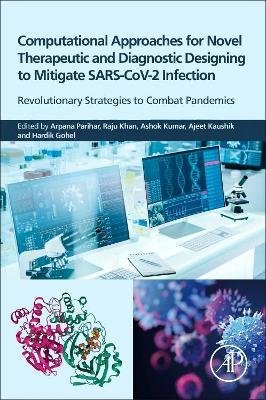Arpana Parihar is a DST Scientist B at CSIR-Advanced Materials and Processes Research Institute (AMPRI), Bhopal, India. She has 8 years of research and teaching experience and her current research interests include fabrication (Micro/Nano-fabrication) of Bio-devices/bio-medical POCT Devices for early diagnosis of cancer and infectious disease. She has gained significant expertise in the field of 3D cell culture, drug designing, tissue engineering, photodynamic therapy, molecular dynamic simulations, and immunoinformatics. Raju Khan, FRSC, is a Senior Principal Scientist & Professor, CSIR - Advanced Materials and Processes Research Institute (AMPRI), Bhopal, MP, India. He has more than 15 years of experience in electrochemistry to explore electrochemical properties of nanostructure materials to design and develop efficient biosensor devices integrated with microfluidics for biomedical applications. Dr. Ashok Kumar is currently working as an Associate Professor in the Department of Biochemistry of All India Institute of Medical Sciences Bhopal. His current research interest is understanding the role of non-coding RNAs and sphingosine-1-phosphate signaling in Head and Neck Cancer. He received his PhD degree from Sanjay Gandhi Postgraduate Institute of Medical Sciences (SGPGIMS) Lucknow, India. Then, he received postdoctoral training from UCSFBenioff´s Children´s Hospital Oakland & Research Centre, Oakland, CA, USA. Dr. Ashok Kumar´s major area of research work are Cell & Molecular Biology, Cancer Biology, Immunology & Sphingolipid signaling. He has more than 15 years of research experience. He has published more than 50 research articles and 10 book chapters and he has edited two books. He is a member of several international professional societies including American Association of Cancer Research and Fellow of Royal Society of Biology Dr. Ajeet Kaushik is Assistant Professor at the NanoBioTech laboratory, Department of Environmental Engineering, Florida Polytechnic University, USA. He is the recipient of various reputed awards for his service in the area of nano-biotechnology for health care. He has edited four books, written 100 international research peer reviewed publications, and has three patents in the area of nanomedicine and smart biosensors for personalized health care. In the course of his research, Dr. Kaushik has been engaged in design and development of various electro-active nanostructures for electrochemical biosensor and nanomedicine for health care. His research interests include nanobiotechnology, analytical systems, design and develop nanostructures, nano-carries for drug delivery, nano-therapeutics for CNS diseases, on-demand site-specific release of therapeutic agents, exploring personalized nanomedicines, biosensors, point-of-care sensing devices, and related areas of health care monitoring. Dr. Hardik A. Gohel is an Associate Director and Assistant Professor of Computer Science at University of Houston-Victoria (UHV) joined in August 2019. He received his Ph.D. in Computer Science from University of Hertfordshire, Hatfield, England in 2015. He worked in Florida International University (FIU) as a postdoc from October 2016 to July 2019. His research interest includes Artificial Intelligence, Cybersecurity, Digital Health, Virtualization, and Social Media. He is also working on how to prepare quality diversified workforce with artificial intelligence in science, technology, engineering and mathematics (STEM) education. He has published books, book chapters, and many articles in peer reviewed journal and conferences. His research projects have involved cyber test automation and monitoring, smart bandages for wound monitoring, bigdata for security intelligence, trustworthy cyberspace for security and privacy of social media, predictive maintenance for nuclear infrastructure, and database and mobile forensics infrastructure. He is interested to design and develop robust artificial intelligence and cybersecurity solutions to make human life better. Dr. Gohel is actively working with United States Federal funding agencies and national labs for research collaborations. He is also interested in linkages, and MOUs with government, academia and industry to foster individual and institutional partnerships in a natural and sustainable manner.


